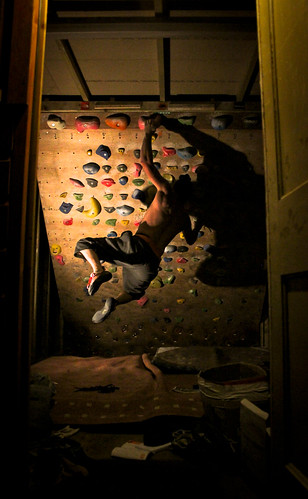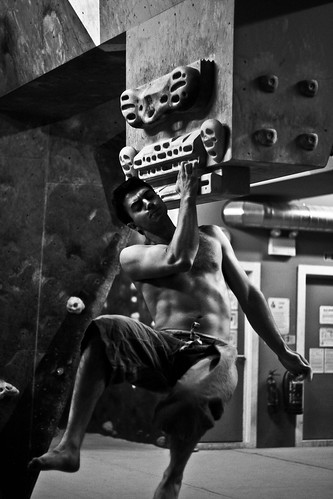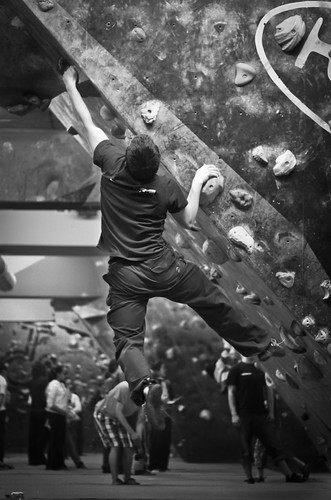Sandbagging: The art of undergrading boulder problems.
Everyone knows it, everyone moans about it.
The regulars learn to ignore it, and the beginners don't know any better.
So why should we care?
Well - with the growth of the climbing industry, and the increase in choice for the general public, it has never been more important for the 'product' of a climbing centre to be the best it can be.
And that includes the grading.
Sadly, rational consumers (the general public) make up a large portion of the paying customers and they are liable to seek out the 'best' product. Which in their eyes includes the quality of the grading.
I had a think about that and have come to these conclusions about what they really mean, and what we can do as setters to convince them to pay for our work.
When people ask for 'better' grading, I think they are really asking for 2 things.
- Grading is accurate in relation to the other places that they might climb.
e.g. other indoor walls, dartmoor, portland, peak etc - Greater consistency *within* the centre
i.e. If something is graded 7a, it should be roughly equivalent to any other 7a in the centre (obviously)
Since the general public think this, and they are the ones giving money to the centre, it is somewhat important to get this sort of thing right to keep them happy. After all, who wants to come to a centre where they are sandbagged all the time?
As a regular climber both inside and out, I don't really mind being sandbagged *cough Craggy *cough*, because I know where I am relative to myself (mostly). Unfortunately most punters don't, and their ego gets hurt when they are shut down on something 2 grades lower than normal.
Now looking at these posts on UKC it seems that the first point is the major request, rather than grading consistency.
I think the main factors affecting boulder grading can be outlined as followsprobably stem from a few things:
- Some of the setters/graders not getting a huge amount of outside bouldering done on a regular basis. (not necessarily a bad thing, just something to take into consideration when grading)
- Grading without actually climbing the problem or climbing it and then forgetting to grade based on current condition (have you been climbing for 5 hours already?)
- You dont want regulars or other setters to call you a weak punter so you grade it hard and let the customers deal with it.
The first point is a problem because people have good days and bad days.
If I go outside and struggle on a 7A, then my benchmark for 7A naturally becomes something that I find hard...
But what if I was having a weak day?
What if the conditions were crappy?
Or I train hard between that day outside and the next setting job I do?
My standard for 7A is still 'something that I struggle on' but in reality I have become much stronger in the interim.
Unless I can somehow compensate for this by guesstimating my ability increase, then there is no way for me to grade accurately, and things start to get sandbagged.
The second point is obviously a problem - and I hope no one does this...
There is a reason setters should forerun their problems, and it isn't just because you need to check the holds are all tight.
When I am setting at my limit, I will try to get the opinion of someone else (preferably stronger than me) to have a play and tell me what they think.
The third point is probably the largest contributor to the problem, and not just in TCA.
- If you overgrade, then people accuse you of being soft and cheating the system. People don't like that because it undermines their achievements and gives them a false sense of progress... remember James Pearson's E12?
- If you sandbag, then people might moan about you being wrong. Perhaps claiming that you are clearly stronger than you think... unfortunately this is actually a very kind, ego boosting, backhanded compliment, and one which I think many setters tend to enjoy receiving.
Naturally this leads to us - as setters - consciously, or subconsciously, leaning towards the sandbagging option...
I think the best response to all this, is to climb outside as much as possible. We can then talk with others and suggest a grade based on the opinions of a group of people that have a wealth of experience at all difficulties (preferably recent).
Unless someone actively pulls a sandbag grading system in line (possibly getting some abuse for being soft along the way), then I dont think it will normalise on its own.





No comments:
Post a Comment